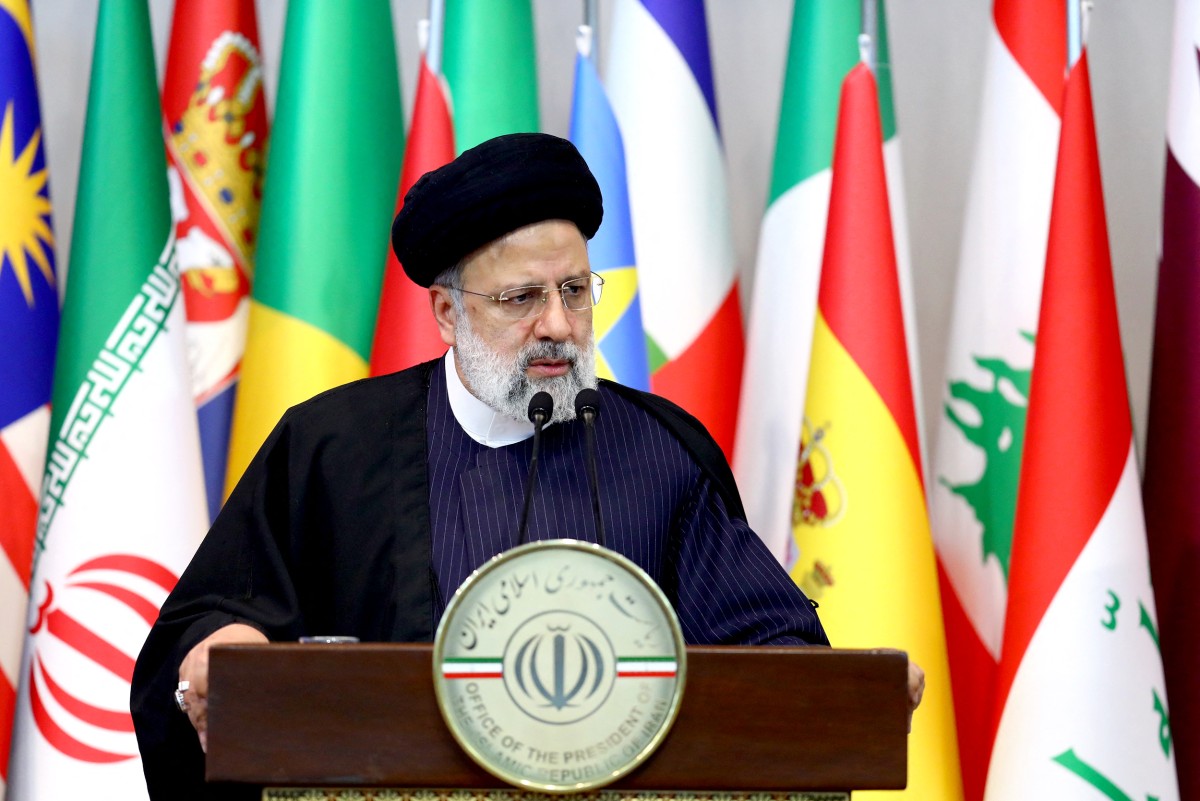Tehran, Iran — A senior general with Iran’s Revolutionary Guards was killed Monday by an Israeli strike in Syria, the military force said, vowing to avenge “this crime”.
Iranian state media also reported the death of Razi Moussavi, describing him as “one of the most experienced advisors” of Quds Force, the foreign arm of the Islamic Revolutionary Guard Corps (IRGC).
Iran’s president Ebrahim Raisi vowed that Israel “will certainly pay” for the killing in Syria of a senior general with the Revolutionary Guards.
“Without a doubt, this action is another sign of frustration, helplessness and incapacity of the usurping Zionist regime (Israel) in the region,” Raisi said in a statement that added Israel “will certainly pay for this crime”.
There was no immediate comment from Israel, which has repeatedly said it will not allow arch-enemy Iran to expand its presence in Syria.
Moussavi “was killed during an attack by the Zionist regime a few hours ago in Zeinabiyah district in the suburbs of Damascus,” Tehran’s official IRNA news agency reported, using a different name for Sayyida Zeinab south of the Syrian capital.
The general was “active in the field of providing logistical support to the axis of resistance in Syria,” IRNA said, referring to groups backed by Tehran and arrayed against Israel.
The IRGC confirmed Moussavi’s death in a statement, saying he was killed in a “missile attack” and vowed that Israel “will pay for this crime”.
The statement noted that Moussavi was a companion of General Qassem Soleimani, Iran’s revered Quds commander who was killed in Baghdad in a US drone strike in 2020.
Next week Iran will mark the fourth anniversary of Soleimani’s assassination.
‘Three missiles’
Iran’s state TV said Moussavi was targeted by “three missiles” and aired footage showing smoke rising from the area of the strike.
A Britain-based monitor, the Syrian Observatory for Human Rights, reported Israeli strikes on positions used by Iranian groups and by Lebanon’s powerful Tehran-aligned Hezbollah in the Sayyida Zeinab area.
Residents reported hearing loud explosions and seeing columns of smoke rising from farms in the area.
Israel has launched hundreds of air strikes on its northern neighbor since Syria’s civil war began in 2011, primarily targeting Iran-backed forces and Hezbollah fighters as well as Syrian army positions.
Israel, which rarely comments on reported strikes in Syria, has intensified attacks there particularly against Hezbollah since the start of its war against Hamas — also backed by Iran — triggered by the Palestinian militant group’s deadly October 7 attacks.
The Islamic republic, which supports Hamas financially and militarily, has hailed the attacks as a “success” but denied any direct involvement.
According to an AFP tally based on Israeli figures, about 1,140 people, mostly civilians, were killed in Israel on October 7.
Israel’s relentless retaliatory military campaign in Gaza has killed more than 20,400 people, mostly women and children, according to the health ministry in the besieged Hamas-run territory.
Iran does not recognize Israel and has made support for the Palestinian cause a centerpiece of its foreign policy since the 1979 Islamic revolution.








